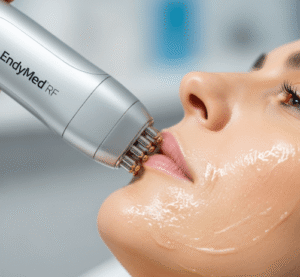Overview
Excessive thirst, medically known as polydipsia, is a condition where an individual experiences an unusual or persistent urge to drink fluids. While occasional thirst is normal, persistent excessive thirst can indicate underlying medical issues such as diabetes mellitus, diabetes insipidus, kidney disease, or electrolyte imbalances. Polydipsia can affect daily functioning, sleep, and quality of life. In Korea, endocrinology, nephrology, and general medical clinics provide comprehensive evaluation, blood and urine tests, and individualized treatment plans to address the underlying causes and manage symptoms effectively.
Highlights:
➤ Persistent urge to drink fluids beyond normal levels
➤ May indicate underlying medical or hormonal disorders
➤ Early evaluation helps prevent complications and improves quality of life
Key Facts
➤ Prevalence: Common symptom in multiple conditions, particularly diabetes; exact prevalence varies by cause
➤ Age affected: Can occur at any age; often observed in adults with metabolic disorders
➤ Gender: Affects both males and females
➤ Impact: Can lead to frequent urination, sleep disturbance, and electrolyte imbalance
➤ Prognosis: Most cases improve once the underlying cause is identified and treated
What is Excessive Thirst?
Excessive thirst is defined as a persistent and abnormal desire to consume fluids, often leading to increased water intake and frequent urination (polyuria). Key features include:
- Persistent fluid intake – Drinking more than the usual daily requirement
- Compulsive drinking – Feeling the need to drink even without dry mouth
- Associated polyuria – Often accompanied by frequent urination
- Impact on daily life – Disrupting work, sleep, or social activities
Polydipsia can be primary (psychogenic) or secondary to medical conditions, such as:
- Diabetes mellitus: High blood sugar leads to fluid loss and compensatory thirst
- Diabetes insipidus: Hormonal disorder affecting water balance
- Chronic kidney disease: Impaired kidney function leads to fluid imbalance
Highlights:
➤ Persistent thirst is abnormal if excessive for daily needs
➤ Frequently accompanied by polyuria
➤ Can signal serious underlying medical conditions
What Symptoms Are Related to Excessive Thirst?
➤ Frequent urination (polyuria) – Often accompanies increased fluid intake
➤ Dry mouth or tongue – Feeling of dehydration despite drinking
➤ Fatigue or weakness – Resulting from fluid and electrolyte imbalance
➤ Headache or dizziness – Due to dehydration or blood sugar fluctuations
➤ Weight changes – Unintentional weight loss may indicate diabetes
➤ Sleep disturbances: Nighttime urination disrupting rest
➤ Associated symptoms of underlying conditions: Blurred vision, increased appetite, or nausea
Highlights:
➣ Symptoms often point to the underlying cause of thirst
➣ Persistent thirst with polyuria requires medical evaluation
What Causes / Possible Causes
➤ Diabetes mellitus: High blood glucose causes osmotic diuresis, leading to thirst and frequent urination
➤ Diabetes insipidus: Deficiency of antidiuretic hormone (ADH) or kidney resistance to ADH
➤ Kidney disease: Impaired kidney function affects fluid regulation
➤ Electrolyte imbalance: High sodium levels (hypernatremia) trigger thirst
➤ Medications: Diuretics, lithium, or corticosteroids may increase fluid loss
➤ Psychogenic polydipsia: Compulsive water drinking, often associated with psychiatric disorders
➤ Other causes: Dehydration from illness, infection, or excessive sweating
Highlights:
➣ Causes can be endocrine, renal, pharmacological, or psychological
➣ Identifying the root cause is essential for targeted treatment
When Should I See My Doctor?
➤ Persistent thirst despite adequate fluid intake
➤ Frequent urination or nocturia (nighttime urination)
➤ Signs of dehydration: Dizziness, fatigue, dry mouth
➤ Rapid weight loss or blurred vision – Possible diabetes mellitus
➤ Mood or behavioral changes – May indicate psychogenic polydipsia
Highlights:
➣ Early evaluation at a Korean endocrinology or nephrology clinic ensures proper diagnosis
➣ Timely management prevents serious complications such as electrolyte imbalance or kidney damage
Care and Treatment
➤ Lifestyle modifications: Maintain adequate hydration, avoid excessive sugary drinks, and monitor fluid intake
➤ Medical management:
- Diabetes mellitus: Blood sugar control via diet, exercise, oral medications, or insulin
- Diabetes insipidus: Desmopressin therapy or medication to manage kidney water balance
- Kidney disease: Tailored treatment depending on the stage of renal impairment
➤ Electrolyte correction: Replace deficiencies or manage hypernatremia
➤ Behavioral therapy: For psychogenic polydipsia, counseling and structured fluid intake
➤ Monitoring: Regular assessment of fluid intake, urine output, and blood chemistry
Highlights:
➣ Treatment focuses on managing the underlying cause and restoring fluid balance
➣ Lifestyle and behavioral strategies improve long-term outcomes
Treatment Options in Korea
Medical Treatments:
➤ Endocrinology and nephrology clinics: Comprehensive evaluation, blood tests, urine analysis, and imaging
➤ Prescription medications: Desmopressin for diabetes insipidus, insulin or oral hypoglycemics for diabetes mellitus
➤ Lifestyle counseling: Structured fluid intake, dietary management, and hydration education
Advanced Procedures:
➤ Kidney function monitoring and dialysis: For advanced renal disease
➤ Psychiatric support: For patients with psychogenic polydipsia
➤ Follow-up care: Regular monitoring of electrolytes, kidney function, and blood sugar levels
Rehabilitation & Follow-Up Care:
➤ Education on hydration strategies, diet, and medication adherence
➤ Continuous monitoring to prevent recurrence and complications
➤ Multidisciplinary support for medical, psychological, and lifestyle management
Highlights:
➣ Korean clinics provide advanced diagnostics, individualized therapy, and long-term follow-up
➣ Early intervention ensures restored fluid balance, reduced complications, and improved quality of life













